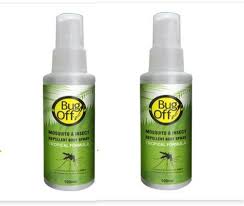Unveiling the Power of Insect Repellent Spray
An insect repellent spray is a specialized solution designed to deter and protect against biting insects like mosquitoes, ticks, flies, and gnats. It typically contains active ingredients such as DEET, picaridin, or natural alternatives like oil of lemon eucalyptus. When applied to exposed skin or clothing, the repellent creates a barrier that confuses and repels insects, preventing them from landing and biting. This essential outdoor companion provides a crucial defense against insect-borne discomfort and potential health risks, allowing individuals to enjoy the great outdoors with peace of mind.
Choosing the Right Active Ingredient

In the midst of nature's beauty and the allure of outdoor adventures, the persistent presence of buzzing mosquitoes, ticks, and other biting insects can quickly turn a tranquil experience into an uncomfortable ordeal. This is where the unassuming yet powerful tool of insect repellent spray steps in. A vital companion for explorers, hikers, campers, and even those enjoying a quiet evening in their backyard, insect repellent spray forms an invisible shield against nature's winged adversaries.
Insect repellent is used to deter and protect individuals from insect bites and stings. It serves as a preventive measure against the discomfort, irritation, and potential health risks associated with insect-borne diseases. By applying insect repellent to exposed skin or clothing, individuals create a barrier that discourages insects, such as mosquitoes, ticks, flies, and gnats, from landing and biting. This is especially crucial in areas where these insects may carry diseases like malaria, Zika virus, Lyme disease, or dengue fever. Insect repellent is a valuable tool for outdoor activities, travel to insect-prone regions, camping, hiking, and simply enjoying the outdoors in environments where biting insects are prevalent.
Types of Insect Repellent Spray
Insect repellent sprays come in various formulations, each tailored to provide effective protection against a range of biting insects. Understanding the different types and their active ingredients is crucial for choosing the right repellent for your specific needs and preferences.
1. DEET-Based Repellents:
Active Ingredient: DEET (N,N-Diethyl-meta-toluamide)
Overview: DEET is one of the most widely recognized and effective active ingredients in insect repellents. It provides robust protection against a broad spectrum of insects, including mosquitoes, ticks, flies, and gnats. DEET-based repellents are available in varying concentrations, with higher concentrations offering longer-lasting protection.
Advantages:
- Effective against a wide range of biting insects.
- Long-lasting protection with higher concentrations.
- Suitable for use in areas with high insect activity.
Considerations:
- May have a strong odor and slightly greasy feel.
- Some individuals may have skin sensitivities or prefer alternatives.
2. Picaridin-Based Repellents:
Active Ingredient: Picaridin (KBR 3023)
Overview: Picaridin is a synthetic compound that has gained popularity as an alternative to DEET. It offers excellent protection against mosquitoes and ticks without the greasy feel associated with some DEET-based repellents. Picaridin-based sprays are available in varying concentrations.
Advantages:
- Non-greasy and odorless, making it more pleasant to use.
- Provides effective protection against mosquitoes and ticks.
- Suitable for individuals with skin sensitivities.
Considerations:
- Some formulations may have a mild scent.
- Higher concentrations may be required for extended outdoor activities.
3. Oil of Lemon Eucalyptus (OLE) Repellents:
Active Ingredient: Oil of Lemon Eucalyptus (p-menthane-3,8-diol or PMD)
Overview: OLE is a plant-based repellent derived from the lemon eucalyptus tree. It offers a natural alternative to synthetic chemicals like DEET and picaridin. OLE has been found to be effective against mosquitoes.
Advantages:
- Plant-based and considered a natural alternative.
- Offers protection against mosquitoes.
- Pleasant citrus scent compared to chemical repellents.
Considerations:
- Check for products specifically labeled as containing OLE or PMD for effectiveness.
- May not provide protection against ticks as effectively as DEET or picaridin.
4. Natural Repellents:
Active Ingredients: Various essential oils (e.g., citronella, lavender, peppermint)
Overview: Natural repellents utilize essential oils derived from plants known for their insect-repelling properties. While these may not offer the same level of protection as DEET or picaridin, they provide a more natural and eco-friendly option.
Advantages:
- Plant-based and environmentally friendly.
- Suitable for individuals seeking natural alternatives.
- Pleasant scents compared to chemical repellents.
Considerations:
- Effectiveness may vary depending on the specific essential oils used.
- Reapplication may be more frequent compared to chemical repellents.
How long does insect repellent last
The duration of effectiveness for insect repellent depends on several factors, including the specific active ingredient, its concentration, environmental conditions, and individual factors like sweating or water exposure. DEET (N,N-Diethyl-meta-toluamide):
- Lower concentrations (around 10%): Provide protection for approximately 2-3 hours.
- Higher concentrations (30% or more): Can offer protection for up to 8 hours or more.
- Picaridin (KBR 3023):
- Concentrations of 20% or higher: Provide protection for about 6-8 hours.
- Oil of Lemon Eucalyptus (OLE or PMD):
- Generally provides protection for about 6-8 hours.
- Natural Repellents (Essential Oils):
- Duration of effectiveness varies widely depending on the specific oils used. Typically, natural repellents may provide protection for 1-3 hours before needing reapplication.
It's important to note that factors like sweating, swimming, and activities that cause friction on the skin can reduce the effectiveness of the repellent. In such cases, reapplication may be necessary more frequently.

Application and Safety Considerations of Insect Repellent
Proper application of insect repellent is crucial for its effectiveness and ensuring your safety. Additionally, there are important safety considerations to keep in mind, especially when using repellents on children or individuals with sensitive skin.
1. Proper Application: Maximizing Effectiveness
- Apply to Exposed Skin: Apply insect repellent to exposed skin, as well as to clothing, especially if you're in areas with high insect activity.
- Avoid Overapplication: Use a thin, even layer of repellent. Applying too much does not provide added protection and can lead to product buildup on the skin.
- Avoid Contact with Eyes, Mouth, and Wounds: Take care to avoid applying repellent near the eyes, mouth, or on open wounds or irritated skin.
- Use Caution on Children: When applying on children, avoid their hands, as they may touch their face or eyes. Use it sparingly on their faces and avoid applying to their hands.
- Apply Before Sunscreen: If using both sunscreen and insect repellent, apply sunscreen first and allow it to absorb into the skin before applying repellent.
- Reapplication: Follow the manufacturer's instructions for reapplication. Generally, reapply as needed, especially after swimming, sweating, or extended outdoor activities.
2. Safety for All Ages: Special Considerations
- Children: Choose a repellent with a lower concentration of active ingredient for children, typically around 10% DEET or less. Do not use DEET on infants under two months old.
- Sensitive Skin: Individuals with sensitive skin may prefer picaridin-based or natural repellents, which tend to be less likely to cause irritation.
- Pregnant or Nursing Women: It's generally considered safe to use DEET, picaridin, and oil of lemon eucalyptus during pregnancy or while nursing. However, consult a healthcare provider for personalized advice.
- Allergies or Skin Conditions: Individuals with allergies or certain skin conditions should consult a healthcare provider before using insect repellent.
- Avoiding Combination Products: Avoid using products that combine sunscreen and insect repellent, as sunscreen needs to be reapplied more frequently than repellent.
3. Storing and Handling:
- Proper Storage: Store insect repellent in a cool, dry place, away from direct sunlight or extreme temperatures.
- Dispose of Expired Products: Check the expiration date and dispose of expired repellent properly. Do not use products past their expiration date.
- Avoid Ingestion: Keep insect repellent out of reach of young children and avoid ingestion.
Alternative Options: Clothing and Spatial Repellents
In addition to insect repellent sprays, there are alternative methods to further enhance protection against biting insects. These options involve treating clothing or creating insect-free zones in your outdoor space.
1. Protective Clothing: A First Line of Defense
- Treated Clothing: Specialized clothing treated with insect repellent offers an additional layer of protection. These garments are designed to deter insects from landing on the fabric, providing an extra barrier of defense.
- Permethrin Treatment: Permethrin is a synthetic chemical that can be applied to clothing, shoes, and gear. It effectively repels and kills insects upon contact. Permethrin-treated clothing remains effective even after multiple washes.
- Mesh Bug Nets: When spending time in areas with high insect activity, consider using mesh bug nets. These nets can be worn over hats or draped over strollers, providing a physical barrier against biting insects.
2. Spatial Repellents: Creating Bug-Free Zones
- Citronella Candles or Lanterns: Citronella candles or lanterns release a fragrant smoke that deters mosquitoes. Placing these in outdoor areas can help create a bug-free zone for gatherings or relaxation.
- Ultrasonic Devices: Some ultrasonic devices emit high-frequency sounds that are intended to repel insects. These devices are designed to create an insect-free zone within a specified range.
- Mosquito Nets and Screens: For camping or sleeping outdoors, using a mosquito net or sleeping within a screened-in area provides a physical barrier against insects.
- Outdoor Fans: Running a fan in outdoor spaces can help disrupt the flight path of mosquitoes, making it more challenging for them to land and bite.
Insect repellent spray, with its diverse formulations and active ingredients, stands as an indispensable tool in our arsenal against insect-borne discomfort and potential health risks. Armed with knowledge about the various types, their active ingredients, and proper application techniques, individuals can confidently navigate their way through nature's wonders without the unwelcome presence of biting insects.



